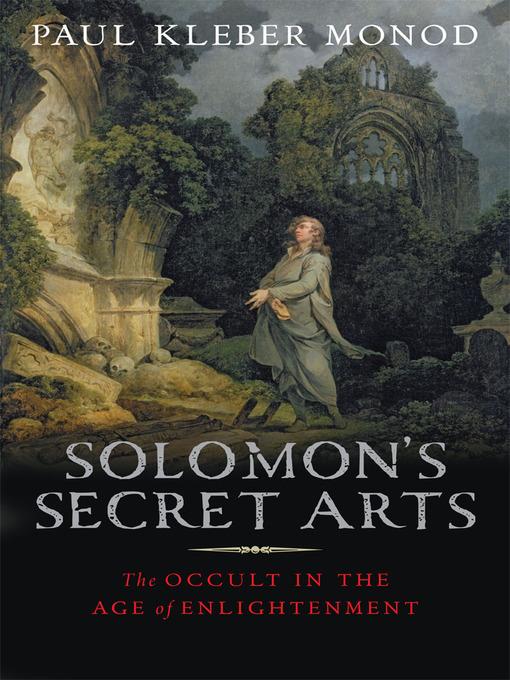
Solomon's Secret Arts
The Occult in the Age of Enlightenment
کتاب های مرتبط
- اطلاعات
- نقد و بررسی
- دیدگاه کاربران
نقد و بررسی

Starred review from May 20, 2013
Despite being known as an era which valued science and reason, the Enlightenment, argues Monod, did not totally eradicate belief in the magical, mystical, and the occult. The Middlebury College histo-ry professor examines the popularity of occult philosophical beliefs and practices such as astrology, alchemy, ritual magic, and witchcraft, demonstrating not just the ways the occult survived the Enlight-enment in Britain, but also its influence over some of the era's rational thinkers like Boyle and New-ton. Throughout the period, the occult's pervasiveness, or lack thereof, was defined by its association with popular superstition and its attendant social acceptability. As Monod successfully demonstrates, interest in the occult did not disappear, but continuously underwent changes in response to the times, becoming less of a science primed for new discoveries than a focus of academic interest. His impres-sively thorough research delves into both contemporary studies and primary sources to reveal these influences, focusing primarily on intellectual pursuits into the occult (rather than vernacular). Monod's text will primarily be used by students and academics, but for such a definitive document of its materi-al, it is surprisingly accessible for those with an interest, but no academic background, in the subject.

June 1, 2013
Monod (history, Middlebury Coll.) has written a first-class study of the pursuit of the occult in England from the Restoration through 1815. He argues that occult studies--alchemy and astrology particularly--flourished in the late 17th century, then declined, only to revive in the late 18th century. In the latter period, however, those who pursued the occult played a diminished role in mainline discourse because the major intellectual figures, unlike Isaac Newton or Robert Boyle of the earlier era, no longer expressed interest in it. Science, Monod points out, was never the main enemy of occultism. Rather, the church and expanding newspaper press made study of the supernatural increasingly unacceptable: the specter of the devil, in particular, turned the churches against occultism. Although the long 18th century overlapped the end of the witch craze in England, serious occultists scorned witchcraft as the province of the poor and outcast. Monod shows how incompatible mind-sets coexisted from one generation to the next across 150 years of so-called modernity in England. It wasn't simply the Age of Reason. VERDICT Deeply researched, grounded in its conclusions, this is a significant work. Though it's likely too detailed to appeal to lay readers, scholars will find the book invaluable.--David Keymer, Modesto, CA
Copyright 2013 Library Journal, LLC Used with permission.

























دیدگاه کاربران